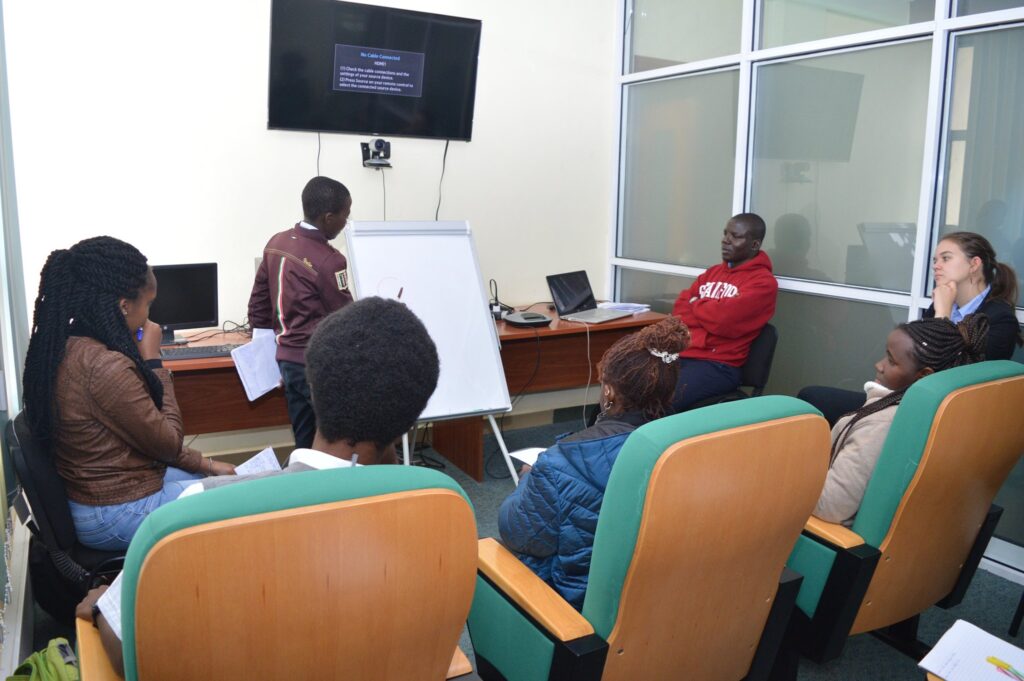
CONCEPT NOTE
INTERNATIONAL TRAINING ON PERSONNEL BRANDING, MENTORSHIP AND COACHING STRATEGIES
COURSE BACKGROUND
In today’s competitive job market and corporate landscape, personal branding, mentorship, and coaching are essential for career growth, leadership development, and professional success. Organizations and individuals who invest in these strategies create stronger leaders, foster continuous learning, and build high-performing teams.
Personal branding enables professionals to differentiate themselves, communicate their unique value, and establish credibility in their industry. Meanwhile, mentorship and coaching play a crucial role in talent development, knowledge transfer, and fostering leadership potential within an organization. When effectively implemented, these strategies enhance employee engagement, boost career progression, and contribute to organizational success.
This course, offered by ECAS Institute, is designed to help HR professionals, business leaders, career coaches, and individuals build strong personal brands, develop mentorship frameworks, and implement coaching strategies that drive professional and organizational growth. Participants will gain practical tools and insights to enhance their professional presence, mentor others effectively, and apply coaching techniques for career and leadership development.
COURSE OBJECTIVES OF THE TRAINING
By the end of the course, participants will be able to:
- Develop a strong personal brand that aligns with their professional goals.
- Understand the role of mentorship and coaching in talent development.
- Implement effective coaching techniques to enhance employee and team performance.
- Design mentorship programs that foster leadership and career growth.
- Utilize networking and thought leadership to strengthen their professional influence.
- Leverage digital platforms and social media for personal branding and professional visibility.
WHAT YOU WILL LEARN
Participants will gain insights into:
- Building a compelling personal brand for career and leadership success.
- Developing mentorship frameworks within organizations and professional networks.
- Implementing coaching strategies for employee development and high performance.
- Using digital branding tools to enhance professional visibility and credibility.
- Fostering leadership through mentorship and succession planning.
- Applying psychological principles in coaching for career growth and employee motivation.
DURATION AND PROGRAM
TARGET PARTICIPANTS
This course is designed for HR professionals, business leaders, career coaches, mentors, corporate trainers, entrepreneurs, and professionals looking to enhance their personal branding, mentorship capabilities, and coaching skills for career development and leadership success.
TRAINING STYLE
The course takes a highly interactive and experiential approach, combining expert-led discussions, practical workshops, and real-world case studies to enhance learning. Personal branding exercises will help participants refine their professional image, while role-playing and mentorship simulations will offer hands-on experience in coaching and guiding others. Live coaching demonstrations, peer-to-peer feedback, and networking opportunities will allow participants to develop strong mentoring skills and receive insights from industry leaders. Digital tools, such as social media branding strategies and LinkedIn optimization, will be integrated to help participants strengthen their online professional presence.
TRAINING MODULES
This course is structured into six comprehensive modules, each designed to provide in-depth knowledge, practical strategies, and hands-on applications for building a strong personal brand, developing mentorship programs, and implementing effective coaching techniques.
| No | Module | Details | |
| 1. | The Power of Personal Branding |
This module focuses on understanding personal branding and how professionals can create a unique identity to enhance career growth, leadership, and credibility.
The key topics include:
|
|
| 2. | Fundamentals of Mentorship and Coaching |
This module provides a foundation in mentorship and coaching, exploring the principles, techniques, and benefits of guiding others in their professional journey.
The key topics include:
|
|
| 3. | Designing and Implementing Mentorship Programs |
This module focuses on creating structured mentorship programs within organizations, professional networks, or personal career development plans.
The key topics include:
|
|
| 4. | Coaching for Leadership and Career Growth |
This module explores coaching as a tool for leadership development and professional growth, with an emphasis on performance improvement and self-awareness.
The key topics include:
|
|
|
5.
|
Digital Presence and Thought Leadership |
This module covers strategies for building an influential professional presence through digital branding, networking, and public speaking.
The key topics include:
|
|
| 6. | Action Planning for Career and Leadership Development |
This final module helps participants apply the knowledge gained throughout the course to their personal and professional lives.
The key topics include:
|
|
GENERAL NOTES
- Training manuals and additional reference materials are provided to the participants.
- Upon successful completion of this course, participants will be issued with a certificate.
- We can also do this as a tailor-made course to meet organization-wide needs. Contact us to find out more: info@ecasiafrica.org.
- Payment should be sent to our bank account before the start of training and proof of payment sent to: info@ecasiafrica.org.
ABOUT ECAS INSTITUTE
The ECAS Institute designs and delivers independent and targeted training, research, and consulting services. Our work focusses on climate change and resilience building, carbon markets, renewable energy, nature-based solution, biodiversity conservation, agriculture and food systems, We are located in Nairobi Kenya and work across the African region. We have implemented training and research assignments in Kenya, Tanzania, Uganda, South Sudan, Somalia, Malawi, Rwanda, Congo, and South Africa. Globally, we have supported our partners from the UK, Denmark, Italy, Sweden, Germany, and USA.
